Make Way For Florida’s GenNext Growers
 The face of American agriculture is changing — it is getting older. Today, the average age of farmers is nearing 60 and it continues to rise because fewer young people are coming in to fill the shoes of growers retiring from the field.
The face of American agriculture is changing — it is getting older. Today, the average age of farmers is nearing 60 and it continues to rise because fewer young people are coming in to fill the shoes of growers retiring from the field.
This changing demographic is startling in ag circles, but it should be for everyone. After all, these are the people who feed the nation and the world.
While the agricultural demographic clearly skews toward a majority on the verge of retirement years, there is good news in the fact there are many young men and women already taking leadership roles on farms across Florida and America.
Florida Grower, and its sister publications American Vegetable Grower and American Fruit Grower, recognize the importance of providing the coming generation with tools to improve their skills and a gathering place where they can share ideas, expertise, and dreams.
Recognizing this need, the GenNext Growers initiative is being launched to be a focal point dedicated to America’s specialty crop producers. This network will not be built in isolation based on assumptions of what we believe future leaders need. Our editors have reached out to young growers across Florida and the nation and asked about issues important to them, their view of the future, and what skills they’d like to enhance.
Who Is A GenNext Grower?
Gen•Next Grower: n. 1) A young person who is preparing or already taking the reins of leadership on a farming enterprise; 2) Has a passion to produce high-quality specialty crops; 3) Seeks to be an advocate in his or her industry and beyond.
Meet some of Florida’s GenNext Growers and see what they are saying.
GenNext Growers Q&A: Meet Emma Reynolds

Reynolds Farms
Lake Placid, FL
Why do you farm?
Emma: I received my degree in finance, but after graduation in 2009, I thought it was kind of depressing to be in the banking business. I asked my dad for a job back on our farm. He told me it was manual labor. I said, ‘I’ll take it.’ The rest is history.
What type of media do you find most useful on the farm (e.g., Twitter, Facebook, newspapers, magazines, etc.)?
Emma: I am a little old school in the fact I still like to read hard copies of newsletters, reports ect. I do, however, have Facebook and Twitter accounts, too. The world is becoming faster paced every day, sometimes it is useful to be able to read eMails and respond to them in the field. I like all the media outlets.
What professional development skills are you most interested in enhancing?
Emma: How to be a better board member [currently serves on the Highlands County Citrus Growers Association board of directors]. I often find it disappointing at some of the meetings that I attend when people are checking eMails or updating statuses on their phones rather that giving attention to the person who is speaking. The personal touch is becoming more lost with the younger generations as the need for instantaneous information increases. It is not just the 20 somethings, it’s the 30s and 40s age ranges, too.
How can you bridge the gap between the farm and the fork?
Emma: The short answer is growers need to get off their tractors. I know I’d rather be in the field working with the resets, but sometimes you need to go to meetings, too. I don’t think there is anything more effective than a farmer talking to a kindergarten class about where food really comes from, or talking to a city council about how zoning affects land values, or informing a politician about how a bill might impact agriculture.
People see one little snippet in the media about tainted juice or ‘pink slime’ and freak out unnecessarily without knowing the other side of the story. The public needs to be better educated about where food comes from. If we [farmers] don’t tell them, the media will.
Where do you want to take your farm in the next 10 years?
Emma: In 10 years, I still want us to have a farm. I know we will always be able to farm something, I just don’t know what that will be.
What advice would you give to those following your generation?
Emma: Do what you love and love what you do. Get a good education because that is something no one can take from you. If you like working with your hands and have pride in watching things grow, then farming may just be for you.
GenNext Growers Q&A: Meet Jonathan Allen
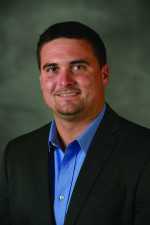
R.C. Hatton Farms
Pahokee, FL
Why did you choose agriculture as your career path?
Jonathan: It is a very rewarding and challenging career and it is what I grew up around. I spent a lot of weekends with my dad on the farm and was always involved, even at a young age.
If you weren’t in the farming profession, what would you be doing?
Jonathan: I would be doing something with wildlife research as I have an interest in that.
What non-work related issues are of concern to you?
Jonathan: Our economic status is of concern, such as the future of our families, the safety of our country, war, all the things going on with other countries, and politics.
How is technology impacting farms today and in the future?
Jonathan: High-tech equipment is making a difference and making us much more efficient. For example, GPS is available on our tractors, we have far more advanced smartphones, and computers for research and things like that. Other developments include better vegetable varieties that withstand weather, pests, and diseases.
What advice would you give to those following your generation?
Jonathan: Always try to stay ahead of the curve and develop new ideas to become more efficient while maintaining a hands-on mentality when running your business.
GenNext Growers Q&A: Meet Kim Erickson
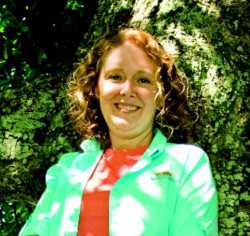
Erickson Farm
Canal Point, FL
How Is Technology Impacting Farms Today And In The Future?
Kim: I am hopeful that more mobile apps will become available to help reduce the time required for recordkeeping. We’ve already seen a huge impact from the Internet. Online, I can find information about new products, and I can market our fruit directly to the consumer at minimal costs.
If you weren’t in the farming profession, what would you be doing?
Kim: I would probably be in market research. I worked in the field for eight years before I returned to the farm and I continue to consult when I have time.
What professional development skills are you most interested in enhancing?
Kim: Since my functional role is marketing, I’m always looking to improve those skills. Overall, I’d have to say networking and leadership. I had the privilege of participating in the Wedgworth Leadership Institute and learned a great deal, but like most things in life — the more you know — the more aware you are of how much you don’t know.
What opportunities do you have that the previous generation could not avail themselves of?
Kim: We have become so accustomed to it that we take instantaneous access to information for granted. Through my smartphone, I have access to scores of reference materials online while I’m standing in the middle of the grove. If I see a pest I don’t recognize, I can snap a picture of it and eMail it to an Extension agent the very same moment.
What Advice Would You Give To Those Following Your Generation?
Kim: Follow your passion and don’t be afraid of an honest day’s work. If you love the land and are passionate about providing people with wholesome food, all the challenges are worth the reward.
GenNext Growers Q&A: Meet Rob Atchley
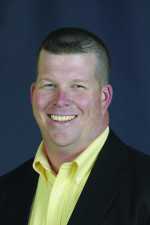
Duda Citrus Division
LaBelle, FL
Why do you farm?
Rob: I wanted to be an architect and was taking drafting classes in college, following that career path. During school, I took one of those tests that assesses what you would be good at, and the result was a farmer. I was mad about it. I came to LaBelle one summer while I was in school, got a part-time job in a citrus grove, and fell in love with it. There is so much diversity in the job. One day you can be mechanic, the next a business man, and the following day a scientist. Plus, it is such a measurable job in that there’s a crop at the end of the season.
There were no farmers in my family, so I am on a different path to agriculture than many younger folks who continue the family farm. That is a good aspect of larger operations like a Duda in that they can provide opportunities for people like myself that don’t have a family farm background or infrastructure.
What advice would you give to those following your generation?
Rob: Be patient. I wish I had a lot more patience early on. You get out of school ready to tackle the world. It takes some years to realize that you have a lot to learn. Listen and learn from those who came before you.
GenNext Growers Q&A: Meet Derek Orsenigo
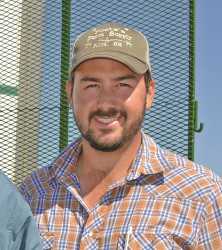
Growers Management Inc.
Belle Glade, FL
How Is Technology Impacting Farms Today And In The Future?
Derek: This generation has the ability to communicate so much easier than the previous generation. I think this is a huge advantage. This is a fast-moving industry, so it pays to have a sense of urgency about things. These communication options bring much more clarity and the ability to track things down faster.
If you weren’t in the farming profession, what would you be doing?
Derek: If I was not directly in production I would still be the industry either doing research or sales.
The disconnect between farm and fork in theU.S. is greater than ever. What can be done to bridge that gap?
Derek: There should be more in-depth teaching and understanding in schools. If kids become interested when they are young then they are more likely to stay interested in the future. To me, that is the place to start. Beyond that, better and more positive media coverage would benefit everyone in the industry.
What opportunities do you have that the previous generation could not avail themselves of?
Derek: I feel that all phases of regulation (food safety, worker safety, chemical safety) along with all of the required recordkeeping are much tougher today as opposed to just a few decades ago.
What is the one piece of advice would you give to the next generation?
Derek: Always work hard while being proactive minded and prepared for anything because the ag industry is full of surprises. Always have a hands on and detail minded management approach and never forget where you came from and where it all started.
GenNext Growers Q&A: Meet Justin Sorrells
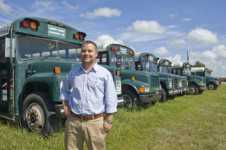
DeSoto Fruit & Harvesting
Arcadia, FL
Why do you farm?
Justin: I chose agriculture obviously for continuing the family farm tradition dynamic, but it is more than just that. It is a great way of life and career. I talk to a lot of people in our local community who have gone off to college. I ask them why don’t they get into agriculture. They tell me there is no money in it or no future. A lot of those college students are coming home with no jobs because of this economy. I think we have to illustrate to them there is a future in agriculture, because there are jobs out there. I certainly believe there’s hope in ag and in citrus here in Florida.
If you were not in the ag industry, what other type of career path would you have pursued?
Justin: For me, it would have been politics. I like politics. You have to know how to deal with people and work with people. I have always been interested in politics and anything with community service.
How can you bridge the gap between the farm and the fork?
Justin: Are you familiar with the ‘Harlem Shake’ video that went viral? If not, it’s all over YouTube. We need something like that to catch on and help connect people with agriculture. I think we can use social media to help bridge the disconnect between what we do and people who know nothing about farming. We have to figure out ways to show people what really happens out in the fields. You don’t just go to Publix to get a carton of juice. I think education has to start in the schools.”
On the importance of social media and technology …
Justin: Social media and technology have to be the bridge with help from our urban partners who want to get the word out. I am on Twitter and Facebook. I read USA Today every day on my iPad. You would be surprised how many people are using LinkedIn. Twitter and Facebook folks 35 and under are on it all the time.
Where do you want your business to be in 10 years?
Justin: Alive. I hope it is alive and I can do everything I can to keep it alive. If it is, it means our company is still working and moving forward. In ag, that is the name of the game … producing a crop and producing the next year’s crop. I don’t look out just 10 years … I hope that our farms are still alive and producing fruit next year.
What advice would you give the next generation?
Justin: More than anything else, I’d encourage education. Not that you can’t be successful without it, but I think you will be a lot more successful with an education. It can be learning about this new technology we have been talking about. If you know about it, you will be a vital asset to any company out there.
GenNext Growers Q&A: Meet Lee Ann Hinton Coleman
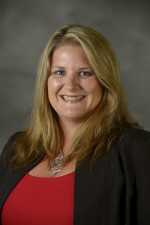
Hinton Produce Farms
Dover, FL
Why did you choose agriculture as your career path?
Lee Ann: I never considered anything else. I love agriculture and love what my family does. It was natural for me to join the family business and follow in my parents footsteps.
If you weren’t in the farming profession, what would you be doing?
Lee Ann: Running a sporting clays range.
How do you envision new technology impacting how you farm today and in the future?
Lee Ann: Technology has already made huge leaps in progress in strawberries. From helping to develop new varieties to new spray materials, soil testing and helping us to “feed” our crops with the needed nutrients, technology has already impacted our industry.
What non-work related issues are of concern to you?
Lee Ann: The political views of over half of our nation. Whether or not my kids will ever know what it’s like to live in a free country.
Would you want your children to follow in your footsteps?
Lee Ann: My kids are 16, 14, 10 (all boys). I want them to follow their dreams. All three are currently involved in our farming operation in some way, however if their dreams take them elsewhere, that is fine. They will still have the knowledge and understanding of agriculture that is so important, and hopefully can share their knowledge with others whether they continue to work in the agricultural industry or not.
What Advice Would You Give To Those Following Your Generation?
Lee Ann: Stand up for what you believe in and know what is right. Defend agriculture and your roots: No farmers, no food. Hopefully, eventually people will understand that.










